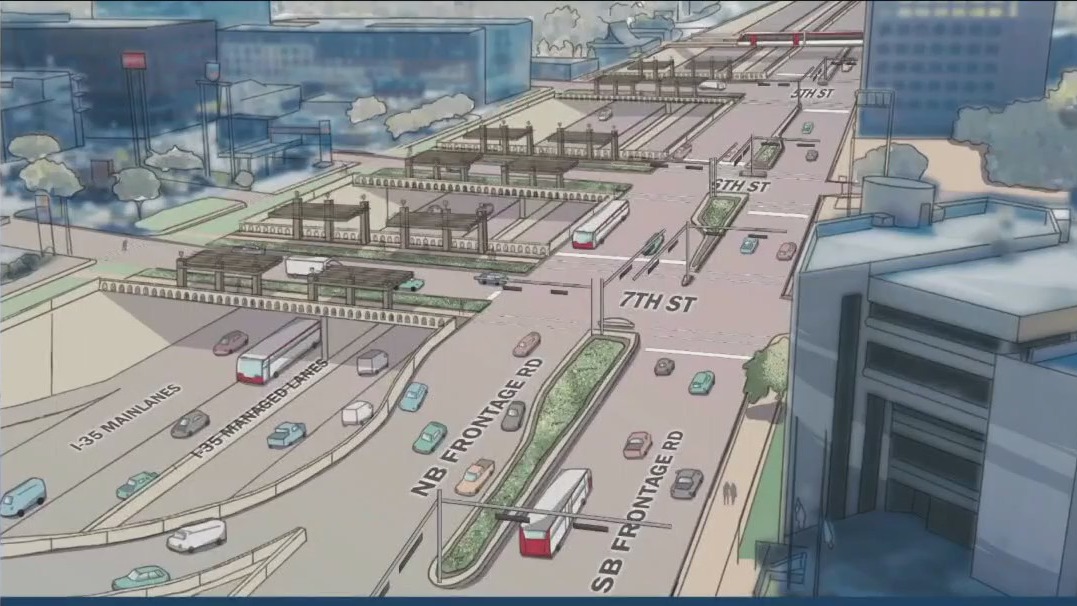TxDOT announces 'giant' expansion project of I-35 to reduce congestion

TxDOT announces 'giant' expansion project of I-35 to reduce congestion
TxDOT released its preferred build on what the project plans for its expansion of I-35, specifically, the part from US 290 E to State Highway 71.
AUSTIN, Texas - TxDOT announced its preferred plan for the I-35 Capital Express Central Project, a giant expansion project of I-35 that hopes to reduce congestion.
"This project has been envisioned probably for two decades," said Tucker Ferguson, District Engineer for TxDOT.
The project plans to specifically expand the part from US 290 E to State Highway 71.
"This stretch of I-35 has not been expanded since the mid-1970s, and it's currently one of the top most congested highways in the entire state of Texas," he said.
Ferguson said the improvements are necessary and a long time coming since the last time I-35 was expanded nearly 50 years ago.
"The changes and the improvements will be making two non-toll HOV managing lanes in each direction, rebuilding cross-strait bridges with bicycle and pedestrian accommodations, building shared use paths on both sides of I-35 North and South for bicycle and pedestrian accommodations, and realigning the frontage roads to what will be a boulevard style system for the majority of the project," he said.
READ MORE
- Businesses, groups push back against current I-35 expansion plan
- Groups sue TxDOT to stop proposed I-35 highway expansions
- TxDOT secures funding for I-35 expansion in Austin
Ferguson said this will aid with future congestion issues as well since Austin's population is projected to double in the next 20 years.
"We want to make sure that we address the bottlenecks here in Central Austin and expand for future growth," he said.
In addition to renovating the highway for vehicles and bikes, the plan also includes deck plazas, areas specifically for pedestrians to enjoy around I-35. Ferguson says it will be something similar to Klyde Warren Park in Dallas.
TxDOT will work with the City of Austin and UT Austin to decide what exactly goes in those areas.
Now, this is just a draft of the plan. TxDOT is hoping to receive public feedback over the next 60 days and tweak the plan as needed. Then, the hope is to get environmental clearance by this summer.
Ferguson says they are at least a year and a half out from construction.
"We're breaking this up into five or six different separate construction projects. Each of them will take between three and four years, typically for these types of projects, and they'll be staggered over the next couple of years, so in total, we hope to be finished by 2032-2033 timeframe," he said.

